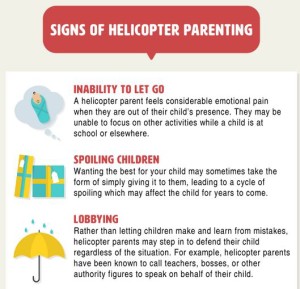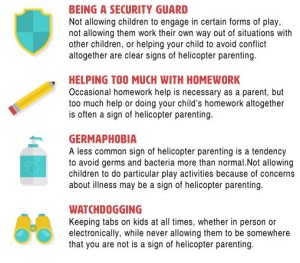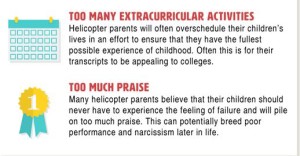T he college years have traditionally been a time for young people to be challenged by new ideas, learn to think critically, and assume greater responsibility for their lives, as they assume their roles as adult citizens. Unfortunately, the past few years have witnessed high levels of emotional dependency, anxiety, and depression among American college students. Continue reading
he college years have traditionally been a time for young people to be challenged by new ideas, learn to think critically, and assume greater responsibility for their lives, as they assume their roles as adult citizens. Unfortunately, the past few years have witnessed high levels of emotional dependency, anxiety, and depression among American college students. Continue reading
3 Ways to Not Talk to Your Child about Sex – Guest Post
Messages about sex fill our society, and many of the messages are not healthy. In our sex-saturated society it is crucial that we speak to our children about their sexuality.
As fathers, it can be intimidating, but don’t worry…
- you don’t have to cover it all at once (but it should be the first of many conversations).
- you don’t have to know everything about it.
- you don’t have to be smooth and polished.
However, don’t wait until you feel ready or you may never do it. Here is an article that I recently found that provides parents some pointers when talking to your children about sex.
In my conversations with emerging adults and teens around the country, one theme continually roars up to the surface…no one is talking with Christians about sexuality. I know that kind of statement colors way too many people with the same drab crayon, but my own research, and that of a lot of other good people studying the sexuality among Christian folks, makes it pretty clear that the exceptions are few – especially in the mainstream evangelical world.
Read the remainder of the article HERE!

Picture Source: http://adammearse.com
Adam Mearse is a pastor and blogger at www.AdamMearse.com.
The “Millennial Exodus” – Is the Future of the Church at Stake?
The Pew Research released a new study confirming that Millennials are exiting the church. If you missed the articles, you can read more HERE and HERE.
I have often heard the expression, “The Church is one generation from extinction” as a reason why youth/children’s ministry is important for the church.
I hate that statement – because it is not true.
The church is not in danger of extinction. Do not fret over the future of HIS church, but have faith in its Owner and Builder and the One who says, “I will always have remnant unto myself.” (Romans 11:3-5) God’s church will stand forever, and even “the gates of hell will not prevail against it.” (Matthew 16:18)

© 2015 Paxson Woelber, Flickr | CC-BY | via Wylio
While the future of the church is NOT at stake; however, the future church may look different.
In the Old Testament, God’s people experienced many times of transition. In Ezra 3, the Jews having been released from Babylonian captivity are working to rebuild the temple. It was a monumental time of celebration; however, we also read:
Yet many of the priests and Levites and heads of fathers’ households, the old men who had seen the first temple, wept with a loud voice when the foundation of this house was laid before their eyes.
Those who had seen the beauty of the first temple were sad because this new temple did not measure up. The passage describes how that within the crowd – some wept while others rejoiced.
As I read Ezra 3, I ask a few questions.
- Did the change in the temple’s foundation display God’s abandonment of His people?
- Did the change in the temple’s foundation reveal that God’s glory was fading?
- Did the change in the temple’s foundation herald that God’s working would be lessened?
I believe that the answer to all three questions is NO. So, what was the cause of their tears?
The future of the church is not at stake; however,

© 2014 Hoshi_sae, Flickr | CC-BY | via Wylio
There will be tears – for those who cling to past forms and formulas of religious institutions. Those who sit in leadership will weep as they see ‘their power’ slipping away.
Tears will fall for the loss of their “majority”.
Tears will fall for the loss of big church and big budgets.
There are tears for those who live in days gone by still looking for God to move as He did in days past. There will be tears.
Tears will fall for those who can only see what was, and assume that what was is what should be.
God’s Spirit is not confined to the forms and formulas of today’s world. God’s work is often found outside religious institutions (If in doubt, check the New Testament.). God’s voice still speaks to those who listen, and has not lost its power.
His spirit is powerful, and working in lives. His breath can shake the mountains. His word can break stone and melt iron. His will can move the hardest of hearts and stir the slumber to action. So may we cling to the power of the word. May we read the word. May we bring his word to those in power.
Lord, may I bring introduce the power of your word to a new generation. And sit back and watch in wonder and amazement as you work in new ways, in new forms, and to a people that You have reserved unto Yourself.
May I not cry at the laying of a new foundation. May I rejoice. May I save my tears. May my hope rest in God alone.
Sola de Gloria.
 Dr. G. David Boyd is the Founder and Managing Director of EA Resources, a non-profit that focuses on providing resources to churches and parents who love emerging adults.
Dr. G. David Boyd is the Founder and Managing Director of EA Resources, a non-profit that focuses on providing resources to churches and parents who love emerging adults.
Signs of Helicopter Parenting – A Visual Guide by Hannah Marks
I recently came across a visual guide that describes Helicopter Parenting and its affects upon emerging adults. While many adults want to give their children autonomy, not all parents recognize when they are too involved in the lives of their children.
Hannah Marks is the Outreach Manager of the Yellowbrick Program. You can access the full article at www.yellowbrickprogram.com.
Related Articles:
Why I Stuck with the Church – The Millennial Exodus
 The Millennial Exodus is a term that I use to mark articles dealing with the declining rate of Millennials who attend the church in the United States. EA Resources is committed to provide resources to churches and parents who want to encourage Millennials in their spiritual development.
The Millennial Exodus is a term that I use to mark articles dealing with the declining rate of Millennials who attend the church in the United States. EA Resources is committed to provide resources to churches and parents who want to encourage Millennials in their spiritual development.
As part of our mission, we purchase written/video work of Millennials who express their stories about “Why I left the Church” or “Why I Stuck with the Church.” If you would like to submit your work for purchase, please contact me gdavid@earesources.org.
Here is the story of a Millennial, and why she has stuck with the church.
I have experienced hypocrisy within the church. It was anything, but fun. In spite of its faults, I have chosen to continue with the church. The church has many areas of improvement to focus on, but I must remember that it is an institution. All institutions are ran by imperfect people are therefore – imperfect. The main reason I stuck with the church lies mostly in my choice to stick with my faith. Although I was supported in my faith by various people throughout my life, I made my faith my own.
I was never forced to go to church. I didn’t grow up with a Christian father, and my mother didn’t truly give her life to Christ until I was in high school. Although surrounded by small group leaders and mentors, my belief in God was never based on anyone else’s faith. It was always mine. However, I know that many other young adults struggle to separate their faith from their parents. They wonder if they would still hold to Christianity if they had been raised in a home that taught a different religion.
My plea to the Church. If you want us to stay… Love us.
As Millennials, we will not be forced into Christianity, or scared there by a fear of hell. These methods do not display Christ’s grace and love. I beg you – connect with us! The Bible teaches that the gathering of Christians is vital for a strong faith. We need to see why you believe in God. We need to see your passion.
Give us a reason to see past the imperfections of the church.
Let us see the heart of the church.
 I’m Junior at Bethel University studying Environmental Science in hopes of doing Environmental Restoration with missions. I love the outdoors, being Minnesotan, and everything about camp– including flannels, chacos, and sharing the gospel. I have my own blog on wordpress if you want to read more by me– amandanoellebabcockblog.wordpress.com
I’m Junior at Bethel University studying Environmental Science in hopes of doing Environmental Restoration with missions. I love the outdoors, being Minnesotan, and everything about camp– including flannels, chacos, and sharing the gospel. I have my own blog on wordpress if you want to read more by me– amandanoellebabcockblog.wordpress.com
Millennials move towards Digital News – and they are willing to Pay for it.
NEW YORK — In a world flush with free information, some young people are still willing to shell out for news they read.

© 2013 Esther Vargas, Flickr | CC-BY-SA | via Wylio
A recent poll shows that 40 percent of U.S. adults ages 18-34 pay for at least some of the news they read, whether it’s a print newspaper, a digital news app or an e-mail newsletter. Another 13 percent don’t pay themselves but rely on someone else’s subscription, according to the survey by Media Insight Project, a collaboration of the American Press Institute and the Associated Press–NORC Center for Public Affairs Research. Older Millennials are more likely than younger ones to personally pay for news.
Here are some points to consider:
- “The proliferation of free news online and new ways for advertisers to reach people has besieged publishers of newspapers and magazines.”
- “Some popular news sites, particularly newer online-only outlets like Huffington Post and BuzzFeed, remain free to all.”
- “Millennials have shown that they are willing to engage in content that interests them,” Herndon said (a professor of journalism).
What does this mean for the church?
- Brand is often more important than price. Millennials who are willing to pay money for news know how to obtain this same news for free from other sources. These Millennials are interested in a specific perspective or “brand” of news.
- Many churches spend resources on their on-line presence without examining the results of that work. Does your church know who is utilizing your electronic media? Many churches have gone with current technologies, but the content does interest Millennials (for various reasons).
- I believe their willingness to pay for digital news is driven by their value of conservation of natural resources and their technology-driven lifestyle. In the church world, the paper bulletin still reigns, but even its days may be coming to an end.
Dr. G. David Boyd is the Founder and Managing Director of EA Resources.
Prerequisite for Intergenerational Ministry
Recent research was released by the Pew Research Center, displaying “the Millennial Exodus” from the church. I believe that one reason why young adults leave the church is because of Ageism.

© 2007 Florencia&Pe, Flickr | CC-BY | via Wylio
Ageism is prejudice or discrimination based upon age. “Ageism” was first coined by Robert Neil Butler in 1971, and is displayed through stereotyping various ages and generations, disdain and avoiding contact with different age-groups, and practices that discriminate services based upon age. While the elderly are often the targets of ageism, emerging adults are also victims of its abuse.
Ageism raises it head ever time that jokes are made about a certain demographic within the church. Ageism smiles when roadblocks keep the young (and old) from leadership and service roles. Ageism cheers in victory when the “youth” alone are designated for a specific project of the church. Ageism reigns when generations glare across the aisle at one another rather than standing hand in hand.

© 2007 Mike Renlund, Flickr | CC-BY | via Wylio
The Good News according to Erdman Palmore is that “Religious organization are uniquely able to use exhortation to reduce ageism because most people belong to one and because they can call on the authority of the Bible and other teachings of their religion.“ (Palmore, Ageism: Negative and Positive)
As followers of Christ, we hold powerful answers to ageing and death for our world. The church also has a single unifying cause (Hint: The answer starts with a “J” and ends with “esus”). Armed with a positive perspectives of ageing and death, the church is equipped to build thriving intergenerational communities.
However, when is the last time that you heard a message, homily, blog-post, or devotional on this topic? Even as I write, I wonder whether or not anyone will read this post.
Intergenerational is a buzzword that you hear every day within youth ministry circles. In order to create healthy intergenerational communities, we must confront ageism and develop strategies for individual and community change.

© 2010 Eric Danley, Flickr | CC-BY | via Wylio
When you combat ageism, you stand as a warrior for church unity. Don’t simply be a spokesperson for the youth of the church. I call you to blaze new trails which allow them to speak for themselves. Don’t strive for intergenerational communities until you know that they won’t attack each other.
If you don’t know where to start combating ageism, then look inside. Ask yourself the question, “How does ageism affect you?” May your answer lead you to the cross, and start you on a journey towards healing.
Dr. G. David Boyd is the Founder and Managing Director of EA Resources.
When Does A Boy Become A Man In His Mother’s Eyes?
I recently came across this well-written article, and I wanted to share it with my readers. The author, Melissa Schultz, is a mother who is transitioning from a full house into an empty nest. She shares her mother’s perspective on what it means to be a man.

The positives of this article:
- It doesn’t link manhood to various traditional, yet lacking markers – like having children, making money, or growing a beard.
- Great portrayal of a mother’s struggle to allow her children to grow up. “And then, even then, when we see our sons as men, sometimes, we still secretly see them as our little boys. Because we want to. Not because they are.”
- Gives several inadequate markers of manhood, but doesn’t fully answer the question, “What makes a man?” Her answer is, “For me, a boy becomes a man when he lets himself fall in love. It says he’s ready and willing to discover who he really is, to take risks; to care for someone other than himself.” While the ability to fall in love can be a mark of knowing who they really are (self-discovery), take risks (courage), and caring for others (self-less), these characteristics are still greatly lacking.
I think that all emerging adults regularly ask themselves if they are truly an adult. As children, they long every day to arrive, and yet often never fully feel satisfied in their arrival. These uncertain feelings can lead our children to a lack of confidence and confusion.
While we can never adequately define adulthood, we can work to give our children the confidence that they need in their journey. During my research, one of the powerful interview moments that I had was when one young man told me that he knew he was a man because, “My dad told me so.”
Take time today to encourage your children in their pursuit of adulthood. May you be a channel of confidence that they need to take the next step.
Here are some additional articles that encourage you (or someone you love) in this pursuit.
Dr. G. David Boyd is the Founder and Managing Director of EA Resources, a non-profit designed to encourage emerging adults and their parents.
Three Marks of the Spiritually Immature

Here is a picture of my youngest – Tobias.
Babies require a lot of attention.
- Babies cannot feed themselves.
- Babies stick.
- Babies can’t defend themselves.
As a father of three boys, I have personally experienced these truth, and as a leader in the church I have noticed some parallels between babies and the spiritually immature.
The Spiritually mature feed themselves.

Here is Andrew, my middle child when he was about 2 years old.
The immature show up to church every Sunday (some of them NEVER miss), and open their mouths saying, “Feed me.” The spiritual parent provides a message that they quickly swallow, and they never eat again until the following Sunday. Like baby birds who eat their mother’s regurgitated worms, spoon spoon-fed Christians eat only what they are given.
A follower of Jesus has tasted how good He is, and desire more. 1 Peter 2:2 says, “Like newborn babies, crave pure spiritual milk, so that by it you may grow up in your salvation, now that you have tasted that the Lord is good.” However, many Christians have filled their natural desire for God with other appetites of the Flesh.
As a disciple matures in faith, he or she is no longer dependent on others for nourishment. Disciples are able to connect with God on a personal level – through listening to His voice, and responding.
The Spiritually mature don’t stink.
Babies often stink. When babies make a mess (in their diaper), they don’t just say, “Mom/Dad, don’t you worry. I will take care of that foul odor coming from my backside by changing my undergarments.” When stinky, babies often don’t notice. As they turn into toddlers, children either cry when dirty, or run off and hide.
Babies are not able to always discern the disgusting from the amazing, and when they are discovered playing in the disgusting, they don’t know what to do. Being aware of the power of sin in our lives, and daily surrendering our lives to Jesus is a step of maturity. The spiritually mature are aware of the messes that they make in their own lives (and how their sins affect others), and are proactive in cleaning up the mess left behind.
The Spiritually mature can defend themselves.
A parent of a baby is always on duty (especially when children are old enough to walk, but not old enough to discern danger). The immature are unable to sense danger whether it comes from an electrical socket or a car. The spiritually immature are unable to discern truth from error. Whether surfing the web or listening to the radio, they are drawn, and persuaded by what their ears want to hear. (2 Timothy 4:3) The spiritually mature have the ability to listen to others, without feeling the need to change their own beliefs, or the necessity to prove others wrong.
Physical age and spiritual maturity are easily confused by those who have never had the later (like Mayo and Miracle Whip). However, true disciples accept no substitute.
 Dr. G. David Boyd is the Founder and Managing Director of EA Resources. He is an avid lover of Legos, video games, and anything related to the Marvel Universe.
Dr. G. David Boyd is the Founder and Managing Director of EA Resources. He is an avid lover of Legos, video games, and anything related to the Marvel Universe.
So You Want to Start a Young Adult Ministry









